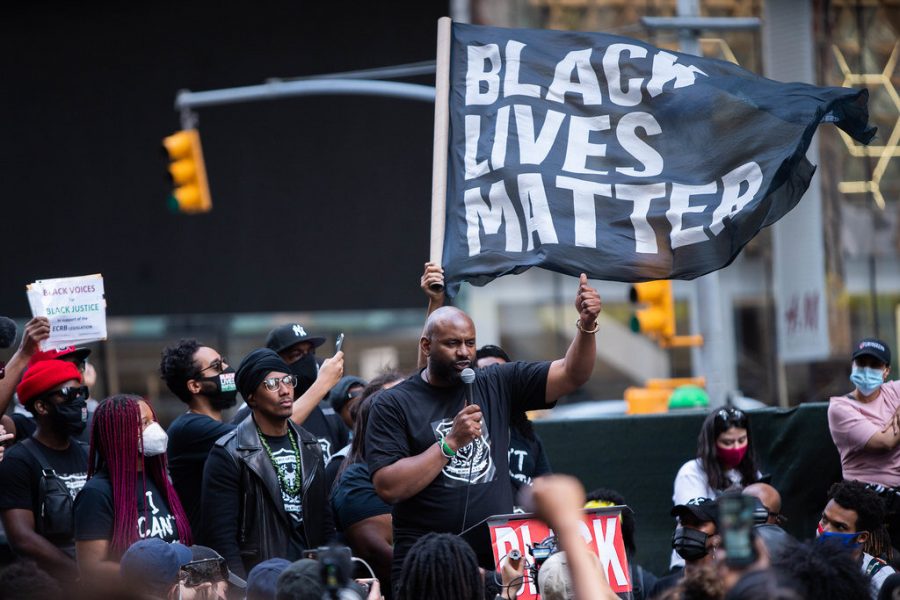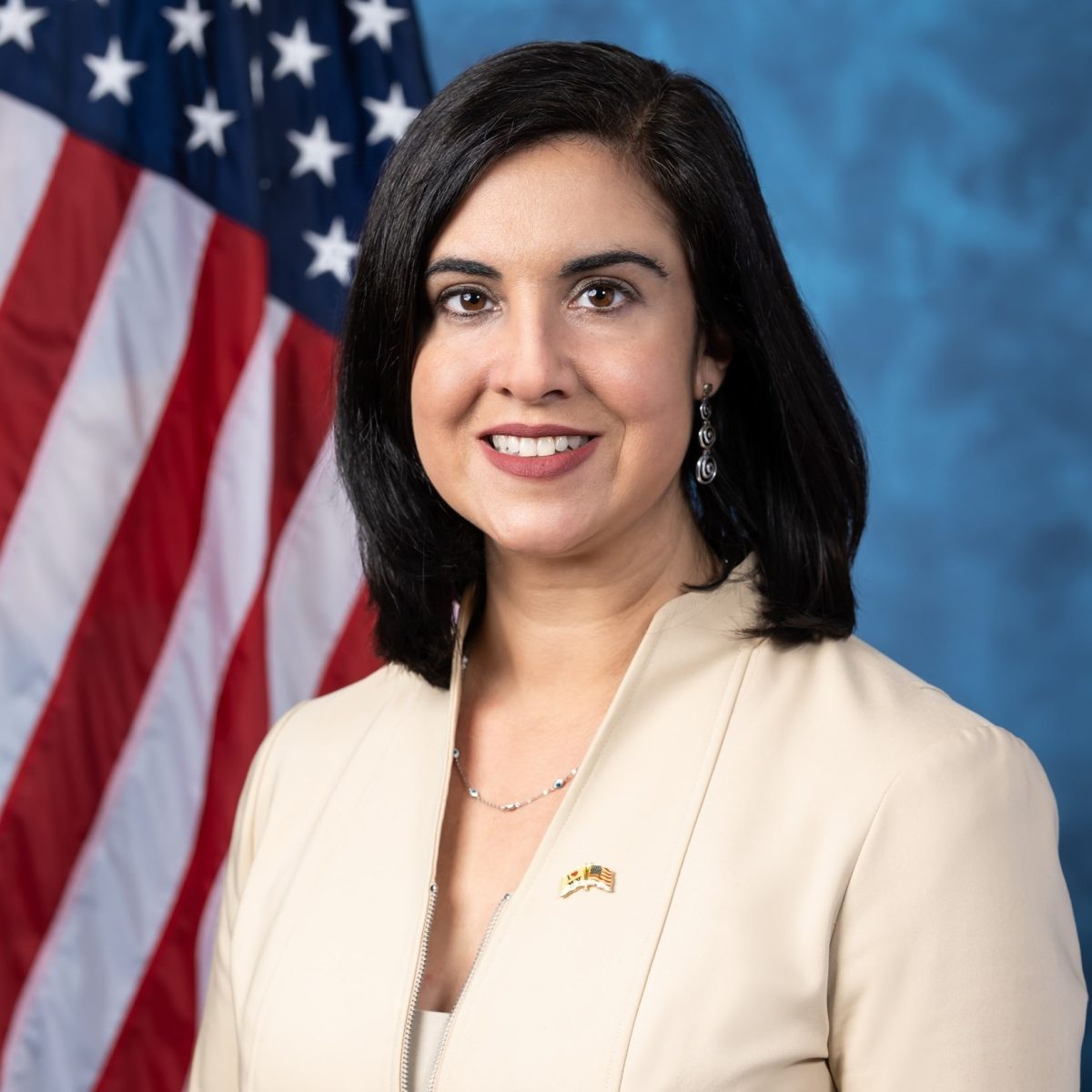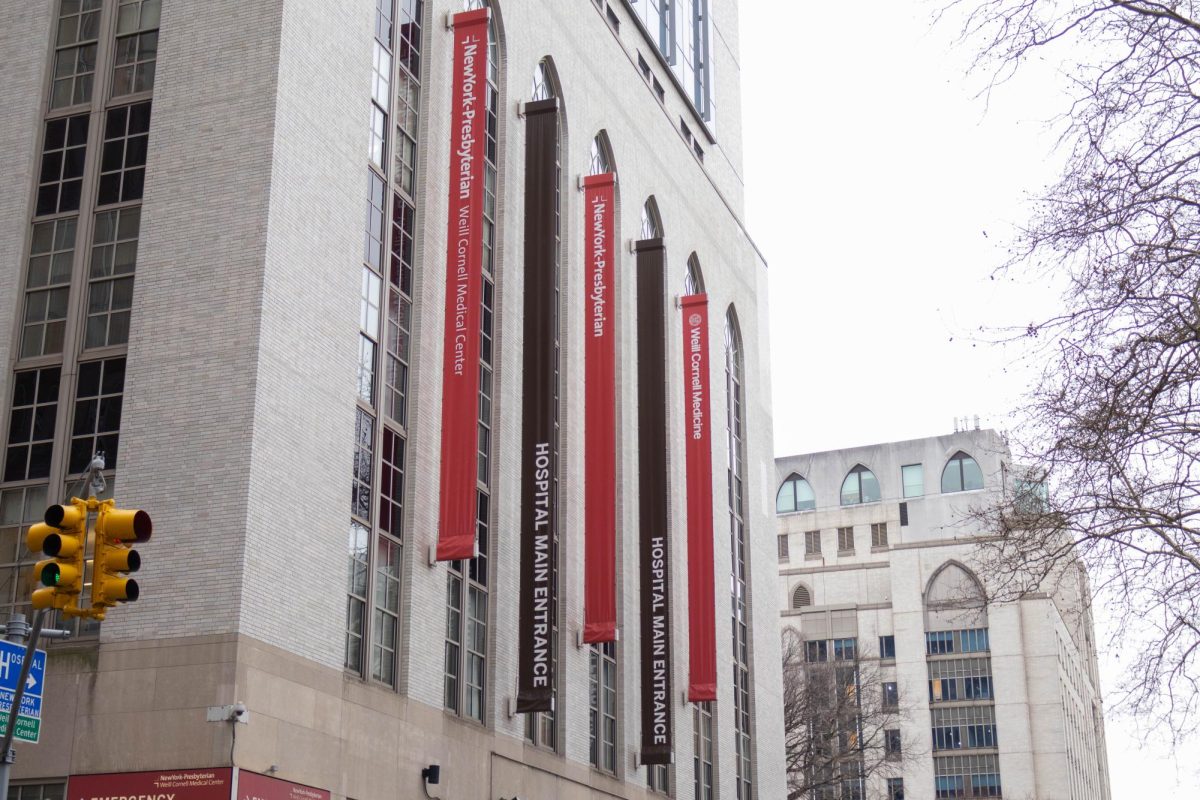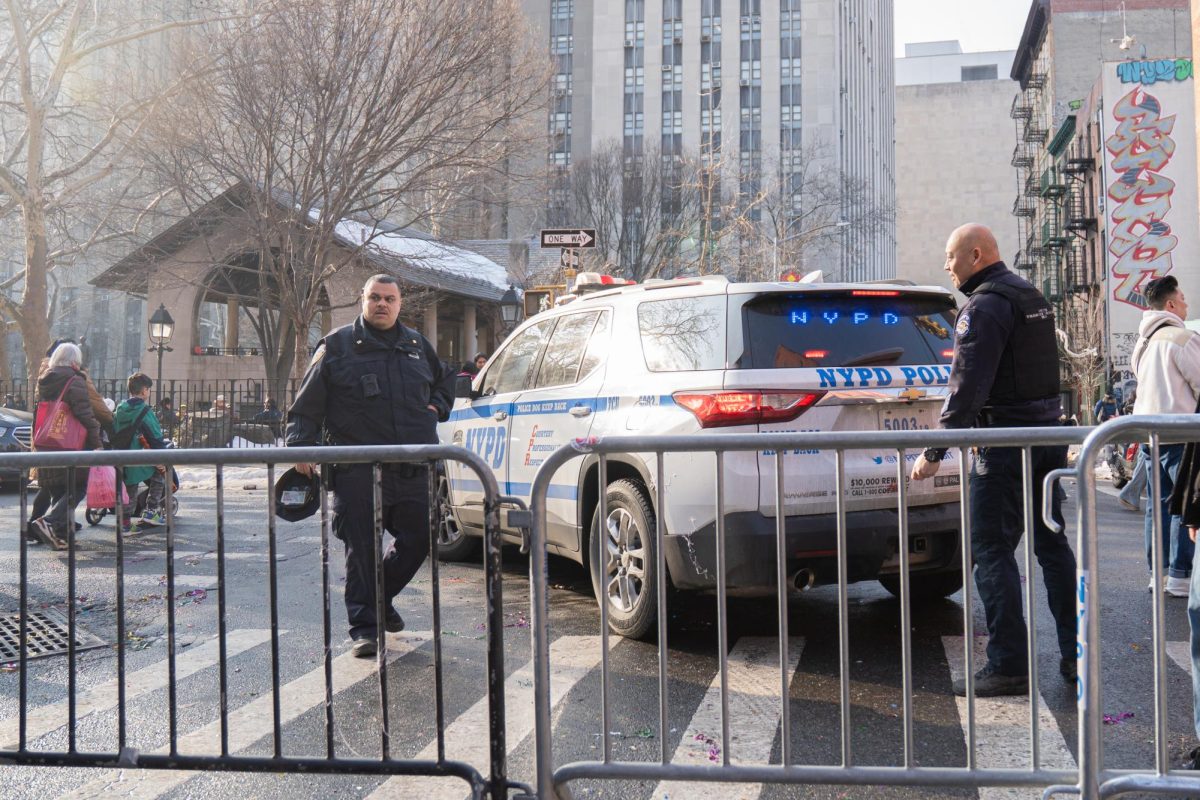A sense of loss and pent up emotions impacted students across Baruch in the aftermath of the killing of George Floyd at the hands of police. On June 4, a “Black Lives Matter Town Hall” event organized by Baruch’s Office of Student Life gave these students a chance to share their anger, frustration and sadness.
The meeting started off with a moment of silence for Floyd, after which faculty and students began discussing how this event and the following protests have affected them. The effects ranged from mental to physical, with some expressing how emotionally painful this is. Others explained that they lost sleep, worrying about themselves and others. One student was tearful when they mentioned their family and how they feared for their lives. Another student connected this to past events, when explaining their anger, questioning how this is still happening.
One student, Teona Pagan, talked about her letter that she delivered to Baruch administration demanding change in regard to the treatment of CUNY black students. She was proud to have the opportunity as it “gave me the platform I needed to explain myself and just talk to the community,” said Pagan.
A major component that was covered during the two plus hour event was mental and physical health. The first speaker on this topic was Jael Amador, Ph.D licensed psychologist at the Baruch Counseling Center. “Whatever reaction that anyone is having is normal,” said Amador. She spoke to the fact that many feel this problem is too big to solve on their own. To her, finding a place, a community to be a part of is incredibly helpful. “We don’t have to do everything, but we can do our part,” Amador continued.
She suggested that finding a “sense of purpose,” is imperative. “So for some people their sense of purpose can be in writing emails and making phone calls, posting on social media. For others it can mean gong to protests and marches,” Amador went on to say. She cautioned everyone to take safety precautions and wear masks and gloves.
The Counseling Center offers individual and group therapy for students free of charge. The sessions are offered via Zoom and can be arranged over the telephone during the COVID-19 quarantine. “We are prepared for this and we have training specifically for dealing with multicultural issues, racial issues and issues that have to do with structural oppression,” explained Amador. If you find yourself dealing with someone who is feeling hopeless during these times, “As a friend I think the best thing you could do is listen,” said Amador. But she cautioned that if it gets to the point where you feel they are in danger, you can call NYCWELL, which is free and confidential.
The next speaker addressed maintaining your health as well, but from a different perspective. Gisele Tchamba has a Ph.D in evaluation and a background in mental health and spoke on how to protect your mind. “We process it by doing the things we enjoy,” she said. Tchamba recommends doing anything we get enjoyment from is a good way to alleviate stress.
Tchamba stressed the importance of still being social and reaching out to talk to someone. “It is good for them to acknowledge the emotions that they are feeling and talk to someone,” she said. Allow yourself to feel the way you feel and channel it in a way that is healthy,” she continued. In addition to speaking to someone, Tchamba explained that she didn’t encourage anyone to stay “numb.”
Releasing your emotions can have a positive effect, “ You can shed those tears and it will heal you, if you have to vent, go ahead vent.” But she counters that you need to “channel it in a very positive way,” and recommends that students take advantage of the counseling centers that CUNY has in place.
The Town Hall, organized by Crystal Tejada, Assistant Director of Student Activities, was attended by over 100 faculty and students and was put together in four days. Tejada put the event together because, “Black Lives Matter and I want to make sure that they matter at Baruch. I believe that it is Baruch’s responsibility to create a safe learning environment and work space for Black faculty, students and staff, and I want to make sure that we see that through.”
“The event covered different items that needed to be addressed, such as mental health, protesting safely, organizing effectively, and changes we need to see at Baruch,” said Tejada. But, the most important part of this Town Hall were the students who were able to share their experiences in a safe place. Many expressed a need for change in the community, and at Baruch.
Faculty was also on hand, Professor Marcus Johnson gave impassioned remarks that assured attendees that no matter what they were feeling, it was okay. “In these types of moments there are a range of emotions we can feel at the same time. Anger, fear, sadness, hope and joy,” Johnson urged that students and faculty “should embrace all the emotions that we are feeling and that none are invalid.”
The overall response to the event has been positive. “Some people have volunteered to help make the systemic changes we need to see at Baruch; other folks have realized the work that they need to do to be anti-racist; and others have been inspired to create changes within their own departments,” said Tejada.
This event is a reflection of what faculty and student are feeling. “I think people who joined were able to see the impacts that systemic racism has had on the Black community. We had faculty, staff and students attend, and we had people from different racial backgrounds come to listen, learn and support,” said Tejada.








